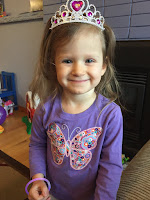Morality has been the subject of academic scholarship for many years. Moral values are not, as I originally imagined, a set of known values about which the whole world agrees.
Springing from Piaget's observations of the stages of cognitive development in children, Lawrence Kohlberg (1927 - 1987) developed a related theory of moral development which has been foundational to this subject's ongoing study.
If morality is developmental, then no wonder humans struggle to agree on what our moral values "should be." Depending on all sorts of cultural and experiential factors, individuals will prioritize certain values over others. An individual will hold fast to the values that "feel right" until and unless the rhetoric around them and how they understand their experiences change sufficiently. One of the most prominent theories today posits 5 foundations of morality.
These foundations can be most succinctly summed up here: https://moralfoundations.org/
You can find an in-depth exploration within the book The Righteous Mind: Why Good People Are Divided By Politics and Religion
Here are those 5 foundations of morality:1) Care (aka "do no harm")
2) Fairness
3) Loyalty
4) Authority
5) Sanctity (aka purity over impurity)
How we understand these values matters, because how we prioritize them affects so much: what we expect from others, what offends or disgusts us, which political and religious leaders appeal to us, what foundational values we imagine should underlie how we govern/are governed, and so much more.
One final thing to know before I start discussing these foundations:
As a rule "Conservatives" generally weight all five values equally, while "Liberals" generally weight Care and Fairness above the other three.The following discussion contains my distillation of how I arrived at my "liberal" moral foundations. It is reflective, personal, and designed to add to the discussion. It is not "what everyone should think so if you disagree you are wrong," nor is it prescriptive or authoritative. I do believe it is valuable as part of the discussion.
CARE and FAIRNESS
Care and Fairness encapsulate all the other values in my mind. They are a summation of the Golden Rule which is found in some form in all world religions. If one genuinely cares about others in equal weight to oneself, one wants equal care and fairness for them as well as oneself. One does not tend to look at others as a threat, but rather, as one's neighbor; therefore one does not tend to dehumanize groups by calling them "criminals" or "immigrants" or "from shit-hole countries." Under the Golden Rule, one tends to see the other in oneself and feel compassion for the hardships that the other has endured (and often continues to endure). One isn't as likely to scapegoat a marginalized group or to lay all the world's problems at their feet as some seem to. Laying society's ills at the feet of "the homosexuals" or "those transgender freaks" or "those teenagers having sex" is seen as incredibly ignorant. Instead, problems are seen as societal and innate to the human condition. Battles can be fought within oneself reducing the impulses to hate, scapegoat, or marginalize others.
The Care and Fairness foundations often show up as activism for social justice causes around the world. They may show up as someone refusing to shop with businesses that exploit their workers just to bring "deals" to their customers. (Personally, I find the idea that some poor worker was exploited just so I could save a few bucks abhorrent. Who am I to deserve to save a little more money at the expense of some nameless, faceless worker in an impoverished country?)
The way liberals and conservatives hold "fairness" can look quite different. I have been on the receiving end of a lot of injustice, which makes me want to stop all injustice everywhere. If someone else is suffering from bullying or marginalization, I believe we all suffer. "We all suffer until nobody suffers," so to speak.
But among some conservatives, the fairness argument seems to sound more like, "I want to be protected from cheaters" as though they themselves never cheat. There doesn't seem to be any sense of their own cheating ways---their entitlements, their desire for special status, or the ways their own team might cut corners. "Cheaters are some group "out there" and never themselves or their own team members.
In my mind, for genuine fairness to exist, everyone must be rigorously aware of their own impulses to cheat. We are all natural-born cheaters, be we liberals or conservatives, anarchists, or anything else. Until that universal human tendency is recognized, cheaters are always "them" "out there" different from "us" "in here." Therefore, if fortune favors our side, we tend to believe we deserved it. If fortune favors our opponents, we are likely to cry, "unfair!"
This is a universal human trait. We ALL must stay alert to this tendency within ourselves and our group.
Next post: The Evolution of Morality Part 2: Loyalty, Authority, Sanctity - coming soon
Thank you for reading!
































